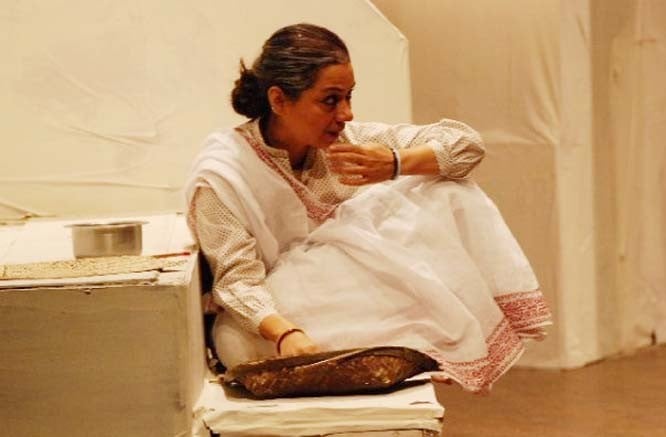

Dear All,
The passing away of Mahvash Mumtaz Faruqi in Karachi last week is a huge blow to the performing arts scene in Pakistan. One of the co-founders of Zambeel Dramatic Readings, Mahvash was an immensely talented performer with an amazing range of expression and quite perfect Urdu diction. An otherwise quiet and serene person, she seemed to positively light up during performances. She was so strong onstage yet so very modest about everything in her life out of the limelight.
Many of us who were her husband Moeen’s friends in Karachi met her only when she relocated from Lahore after the wedding, and we didn’t realise then that in her hometown she was already well known for her theatrical talents showcased in Kinnaird College productions. I still find it so difficult to believe that she is gone.
Mahvash’s passing is, of course, a reminder not just of the uncertainty of life but also of the cruel nature of terminal illness. It’s also a time to reflect on love and loss, and on the nature of bereavement. A death creates a void -- an empty space, where once there had been a living person, a terrible silence where once there had been a buzz of sound and emotion. It creates a hole in the fabric of family and memory, an emptiness that you adjust to as the years go by but never really quite get used to. You carry the sense of loss with you possibly forever -- its pain may get dulled with time but it’s always there -- like the mark of a scar or the perpetual sadness hidden away in some dark corner of the heart.
Why do we human beings have such a difficult time dealing with loss? Should we have ‘evolved’ and become inured to the pain and the sentimentality of memory? Or are the pain and the sentimentality the very thing which make us human? Part of our problem is, of course, that we still subscribe to a chronological view of life, we are convinced that the end of our life is linked to age and that there is a logic to this: that the older among us will go first. We believe this in part because of our conviction that there is nothing more cruel than a parent losing a child… "It should have been my turn first" is so often the cry of the anguished parent. We want to believe that there is a pattern and a chronology to our lives and that death is part of this predictable chronology. Of course it is not: Death’s icy hand reaches out and seizes people randomly and unpredictably…
Despite the utter uncertainty of life, we choose to persist with our idea of the linear nature of human life, optimistically pencilling things in our diaries for months, even years, in advance. A great part of our sense of loss is permeated with guilt: why didn’t we spend more time with the person? Why didn’t we listen to them more carefully? Why didn’t we realise they were struggling or unhappy? Why didn’t we cherish them enough or thank them enough?
It’s difficult to come to terms with loss but I remember what a bereaved uncle told me many years ago: how shutting out memories of my late aunt had been much more painful than allowing himself to be reminded of her. The memories made him feel she was still a part of his life because, of course, she would always be part of his memories.
Mahvash has gone. But in one sense her voice lives on, her work lives on in her dramatic recordings. But this is perhaps small comfort to her family who may echo the anguish of Tennyson’s words, "But O for the touch of a vanish’d hand, and the sound of a voice that is still!"
To know love is to experience loss. Such is the human predicament…
Best wishes